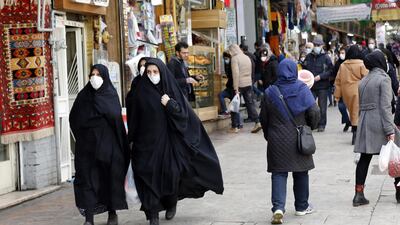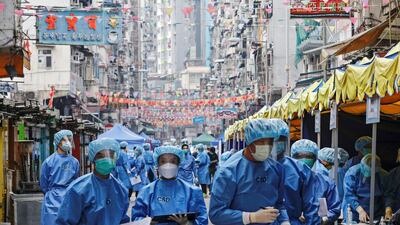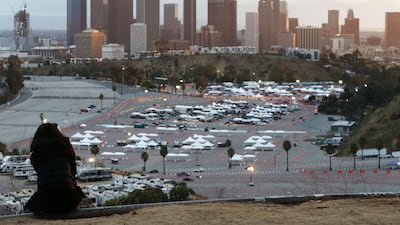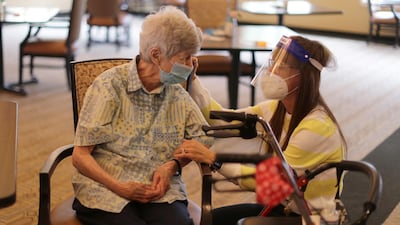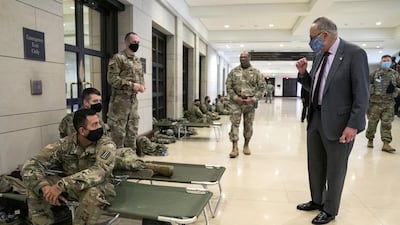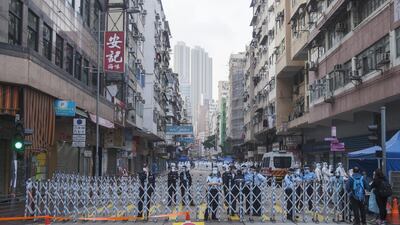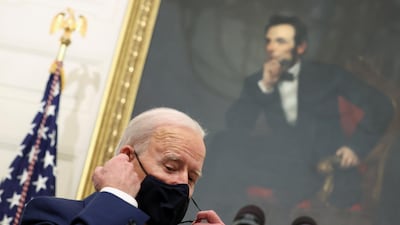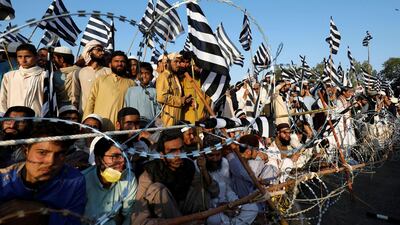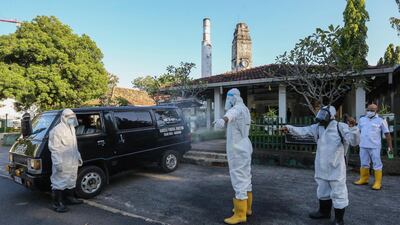Iran will begin Covid-19 vaccinations in the coming weeks, Iranian President Hassan Rouhani said on Saturday.
He said foreign vaccines were "a necessity until local vaccines are available", without giving details about what vaccines would be used.
This month, Iran's supreme leader, Ayatollah Ali Khamenei, banned the government from importing vaccines from the US and Britain,
He accused the countries of possibly seeking to spread the infection to other countries.
Mr Rouhani, in compliance with Mr Khamenei's ban, said at the time that his government would purchase "safe foreign vaccines".
Iran began human trials of its first domestic potential vaccine late last month, saying this could help it defeat the pandemic despite US sanctions that affect its ability to import vaccines.
“There have been good movements in the field of local and foreign vaccines,” Mr Rouhani said.
Vaccinations involving three domestic vaccines – Barekat, Pasteur and Razi, some of which were developed with foreign collaboration – could begin in the spring or the summer, he said.
Coronavirus around the world in pictures
Cuba said this month that it signed an accord with Iran to transfer the technology for its most advanced vaccine and carry out last-stage clinical trials of the shot in Iran.
Tehran and Havana are under tough US sanctions that, while medicine is exempt, often deter foreign pharmaceutical companies from trading with them.
In addition to developing its own vaccine, Iran is participating in the UN's Covax initiative that aims to secure fair access to Covid-19 vaccines for poorer countries.
The country has recorded 1,150,000 cases and 57,000 deaths, according to government data. There has been a decline in recent weeks of new infections and fatalities.
